#history politics and economics
Explore tagged Tumblr posts
Text
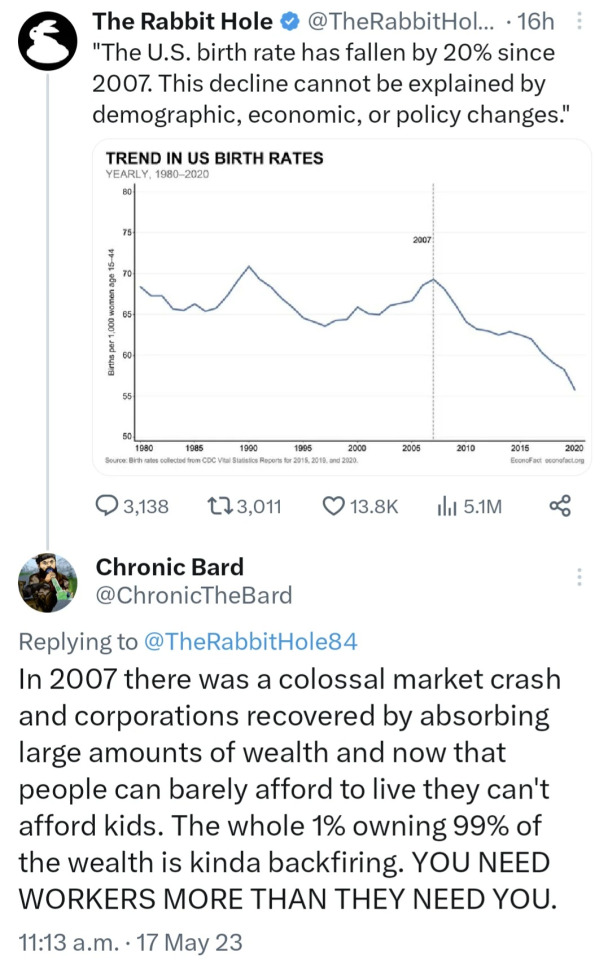
Imagine purporting to be a journalist and saying there were no economic changes after 2007.
#this is why history is important#economics#politics#also why you shouldn't trust paid-for blue checkmarks on the muskrat's birdsite
16K notes
·
View notes
Text
You’re Lucky You Have a House, Peasant!
A history of company towns
by Joyce Rice and Kevin Moore
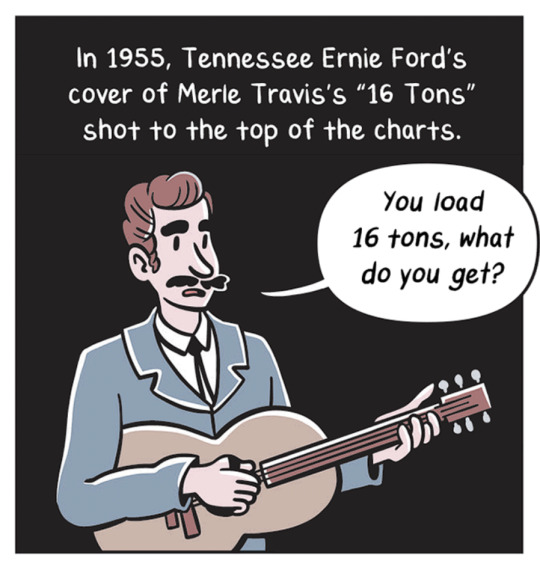
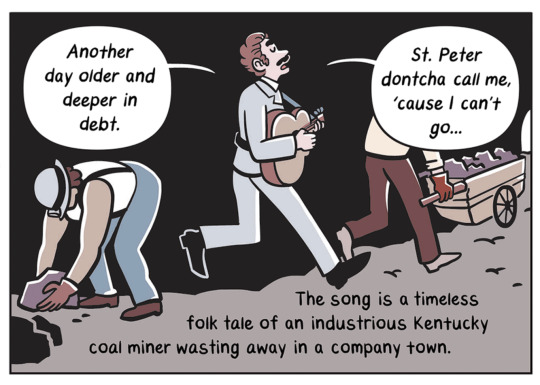
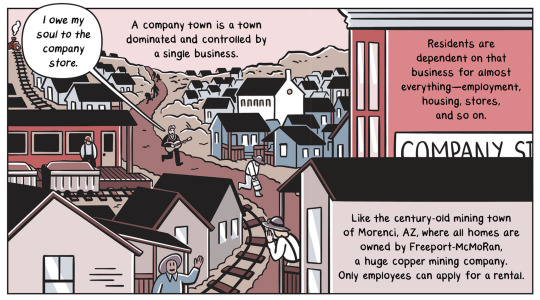
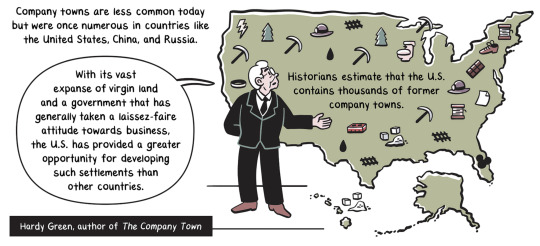
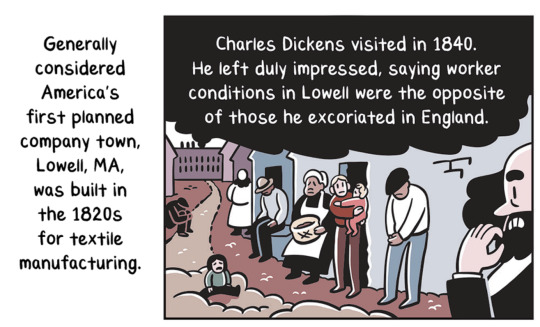
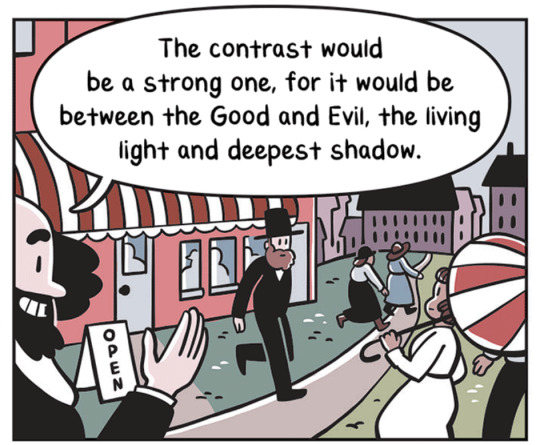
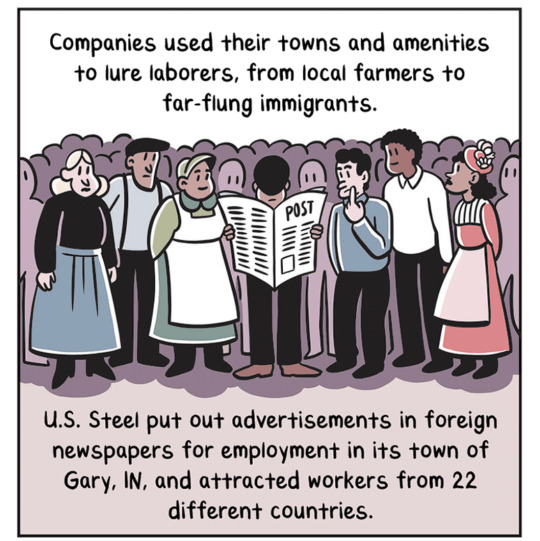

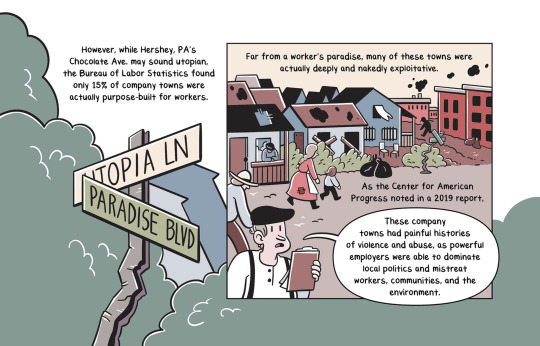
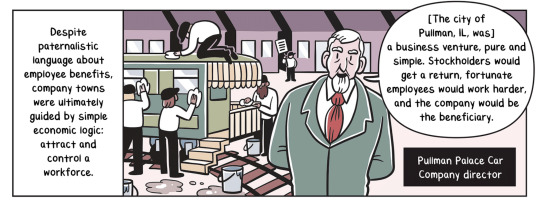

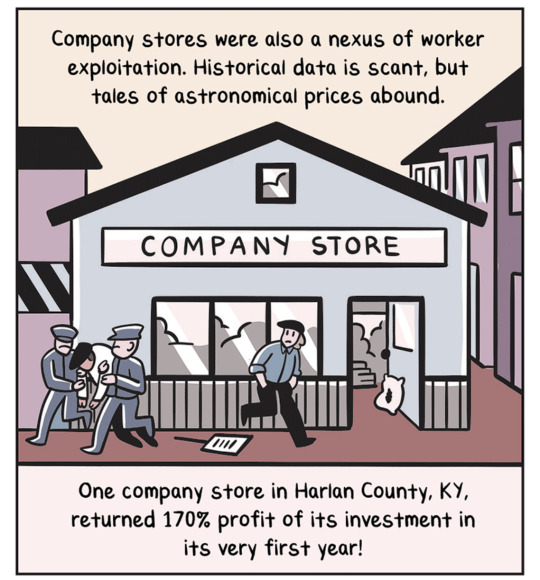
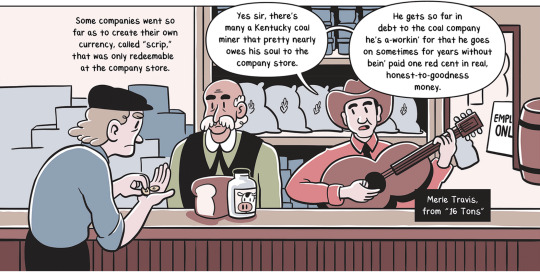
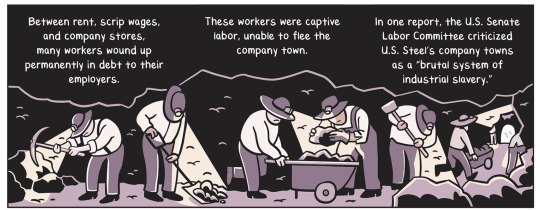

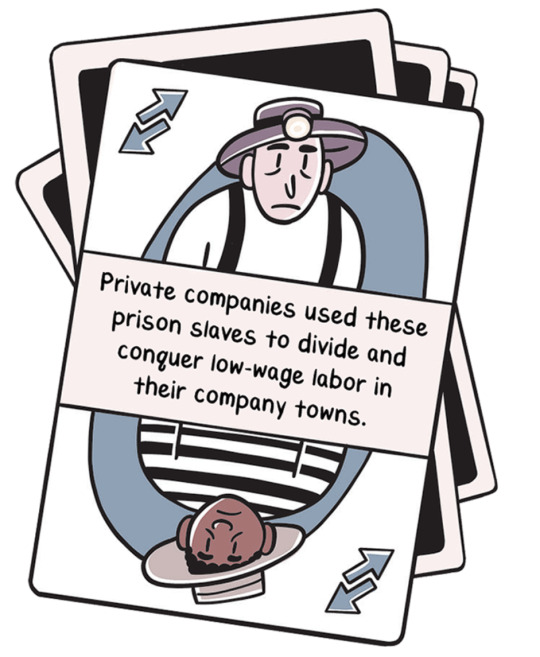
(Continue Reading)
TheNib.com
@thenib
#politics#the left#the nib#comic#webcomic#labor#Labor Unions#organized labor#history#capitalism#economic inequality#oppression#poverty#working class#long post#long reads
15K notes
·
View notes
Text
A CIA whistleblower John Stockwell (1989) giving a huge history lesson about the "CIA Economic Hit Men" 🤔
#pay attention#educate yourselves#educate yourself#knowledge is power#reeducate yourself#reeducate yourselves#think about it#think for yourselves#think for yourself#do your homework#do your own research#do some research#do your research#ask yourself questions#question everything#economic hit men#cia corruption#news#history lesson#hidden history#history#political history#whistleblower#government corruption
566 notes
·
View notes
Video
youtube
A Warning from 1994 of a Two-Tiered Society
As secretary of labor, I thought it important to explain why the Democrats had lost both the House and the Senate in the 1994 midterm elections. I attributed it to the fact that many middle class Americans felt angry and frustrated about not getting ahead, and they took it out on Democrats who had been running Congress for many years. I took a lot of heat for this speech 29 years ago.
Watch and tell me if I was wrong.
437 notes
·
View notes
Text
Among Joe Biden's afflictions and miseries, his wormwood and gall, there are the insults (about his diminished capacities), and then there are the compliments unpaid (about his achievements). We are exposed to more of the first, but it seems that to him the second are more painful. In his first interview after he withdrew as the Democratic Presidential nominee, Biden -- wounded, proud, self-pitying, defiant -- said, by way of defending his record, "No one thought we could get done, including some of my own people, what we got done. One of the problems is, we knew all the things we did were going to take a little time to work their way through. So now people are realizing, 'Oh, that highway. Oh, that...'" He trailed off for a moment and then recovered. "The biggest mistake we made, we didn't put up signs saying 'Joe Did It.'" He ended this with a bitter chuckle. Biden isn't wrong. Objectively, and improbably, he has passed more new domestic programs than any Democratic President since Lyndon Johnson -- maybe even since Franklin Roosevelt.
In the early weeks of 2021, very few people saw Biden as the obvious winner in the large field of potential candidates for the 2024 Democratic nomination. His victory over Donald Trump had not been overwhelming. The Democrats had lost seats in the House even while maintaining a narrow majority, and got to fifty votes in the Senate only after two runoff elections in Georgia broke their way. Then, with nothing close to a mandate, Biden passed domestic legislation that will generate government spending of at least five trillion dollars,, spread across a wide range of purposes, in every corner of the country. He has also redirected many of the federal government's regulatory agencies in ways that will profoundly affect American life. On Biden's watch, the government has launched large programs to move the country to clean energy sources, to create from scratch or to bring onshore a number of industries, to strengthen organized labor, to build thousands of infrastructure projects, to embed racial-equity goals in many government programs, and to break up concentrations of economic power.
-- "Bidenomics Is Starting to Transform America. Why Has No One Noticed?", Nicholas Lemann, The New Yorker, October 28, 2024
#History#Politics#Joe Biden#President Biden#Biden Administration#Presidents#Presidency#Presidential History#Presidential Politics#Domestic Policy#Economy#Economic Growth#The New Yorker#Leadership#Presidential Leadership
61 notes
·
View notes
Text
I'm so immersed in my jason grace new rome uni fic that I'm studying ancient roman law terms using this as an excuse. help.
#I'm COMMITTED fr#I become smart just for these fanfics i swear. i thank the fanfic and fandom community for my thirst for knowledge 😮💨✨#I also remember listening to latin asmrs and learning latin words for reyna and jason :) I need help fr#i hate how I feel the need to want to know EVERYTHING tho 😭 like why do I have to overthink everything#I'm not sure if I should include ancient roman law or common law for jason tho#or he could just learn both as separate classes. the roman law can come under the history category#so he has to learn a bit of everything#political science criminal law economics history civil law corporate law banking law#I'm tired. law students I have always had nothing but respect for you#I won't go TOO deep into what he's studying in the fics tho like I won't mention his lessons in the fic every 5 mins#prolly just him doing presentations and projects then and there#bc like if I go too deep in then I'll get into a writing slump again#bc info dumping is EXHAUSTING it would feel like a school assignment not a fic#pjo#pjo fandom#percy jackson#pjo series#jason grace#pjo hoo#pjo hoo toa#annabeth chase#leo valdez#piper mclean#frank zhang#hazel levesque#jason grace x y/n#jason grace fanfic#jason grace x you#jason grace x reader#࿔‧ ֶָ֢˚˖𐦍˖˚ֶָ֢ ‧࿔ elora's PhD in overthinking
88 notes
·
View notes
Text
‘100% feminist’: how Eleanor Rathbone invented child benefit – and changed women’s lives for ever
She was an MP and author with a formidable reputation, fighting for the rights of women and refugees, and opposing the appeasement of Hitler. Why isn’t she better known today?
Ladies please reblog to give her the recognition she deserves

By Susanna Rustin Thu 4 Jul 2024
My used copy of the first edition of The Disinherited Family arrives in the post from a secondhand bookseller in Lancashire. A dark blue hardback inscribed with the name of its first owner, Miss M Marshall, and the year of publication, 1924, it cost just £12.99. I am not a collector of old tomes but am thrilled to have this one. It has a case to be considered among the most important feminist economics books ever written.
Its centenary has so far received little, if any, attention. Yet the arguments it sets out are the reason nearly all mothers in the UK receive child benefit from the government. Its author, Eleanor Rathbone, was one of the most influential women in politics in the first half of the 20th century. She led the National Union of Societies for Equal Citizenship (Nusec, the main suffragist organisation, also formerly known as the National Union of Women Suffrage Societies) from 1919, when Millicent Fawcett stood down, until the roughly five million women who were not enfranchised in 1918 gained the vote 10 years later. In 1929, aged 57, she became an MP, and remained in parliament until her death in 1946. While there, she built up a formidable reputation based on her advocacy for women’s rights, welfare reform and the rights of refugees, and her opposition to the appeasement of Hitler.
It would not be true to say that Eleanor Rathbone has been forgotten. Her portrait by James Gunn hangs in the National Portrait Gallery. Twenty years ago she was the subject of a fine biography and she is remembered at Somerville college, Oxford – where she studied in the 1890s and ran a society called the Associated Prigs. (While the name was a joke, Rathbone did have a priggish side – as well as being an original thinker, tremendous campaigner, and stubborn, sensitive personality.) She also features in Rachel Reeves’s book The Women Who Made Modern Economics, although Reeves – who hopes shortly to become the UK’s first female chancellor – pays more attention to her contemporary, Beatrice Webb.

A thrilling tome … The Disinherited Family by Eleanor Rathbone. Photograph: Alicia Canter/The Guardian
But Rathbone, who came from a wealthy dynasty of nonconformist merchants, does not have anything like the name-recognition of the Pankhursts or Millicent Fawcett, or of pioneering politicians including Nancy Astor and Ellen Wilkinson. Nor does she enjoy the cachet of writers such as Virginia Woolf, whose polemic about women’s opportunities, A Room of One’s Own, was published five years after Rathbone’s magnum opus.
There are many reasons for Rathbone’s relative obscurity. One is that she was the first woman elected to parliament as an independent (and one of a handful of men at the time). Thus there is no political party with an interest in turning her into an icon. Having spent the past three years writing a book about the British women’s movement, I am embarrassed to admit that when I started, I didn’t know who she was.
Rathbone was not the first person to propose state benefits paid to mothers. The endowment of motherhood or family allowances, as the policy was known, was written about by the Swedish feminist Ellen Key, and tried out as a project of the Fabian Women’s Group, who published their findings in a pamphlet in 1912. But Rathbone pushed the idea to the forefront. A first attempt to get Nusec to adopt it was knocked back in 1921, and she then spent three years conducting research. The title she gave the book she produced, The Disinherited Family, reflected her view that women and children were being deprived of their rightful share of the country’s wealth.
The problem, as she saw it, was one of distribution. While the wage system in industrialised countries treated all workers on a given pay grade the same, some households needed more money than others. While unions argued for higher wages across the board, Rathbone believed the state should supplement the incomes of larger families. She opened the book with an archly phrased rhetorical question: “Whether there is any subject in the world of equal importance that has received so little consideration as the economic status of the family?” She went on to accuse economists of behaving as if they were “self-propagating bachelors” – so little did the lives of mothers appear to interest them.
Rathbone’s twin aims were to end wives’ dependence on husbands and reward their domestic labour. Family allowances paid directly to them could either be spent on housekeeping or childcare, enabling them to go out to work. Ellen Wilkinson, the radical Labour MP for Middlesbrough (and future minister for education), was among early supporters. William Beveridge read the book when he was director of the London School of Economics, declared himself a convert and introduced one of the first schemes of family-linked payments for his staff.
But others were strongly opposed. Conservative objections to such a radical expansion of the state were predictable. But they were echoed by liberal feminists including Millicent Fawcett, who called the plan “a step in the direction of practical socialism”. Trade unions preferred to push for a living wage, while some male MPs thought the policy undermined the role of men as breadwinners. Labour and the Trades Union Congress (TUC) finally swung behind family allowances in 1942. As the war drew to a close, Rathbone led a backbench rebellion against ministers who wanted to pay the benefit to fathers instead.

Rathbone celebrates the Silver Jubilee of the Women’s Vote in London, 20 February 1943. Photograph: Picture Post/Getty Images
It is for this signature policy that she is most often remembered today. At a time when hundreds of thousands of children have been pushed into poverty by the two-child limit on benefit payments, Rathbone’s advocacy on behalf of larger families could hardly be more relevant. The limit, devised by George Osborne, applies to universal and child tax credits – and not child benefit itself. But Rishi Sunak’s government announced changes to the latter in this year’s budget. From 2026, eligibility will be assessed on a household rather than individual basis. This is intended to limit payments to better-off, dual-income families. But the UK Women’s Budget Group and others have objected on grounds that child benefit should retain its original purpose of directly remunerating primary carers (the vast majority of them mothers) for the work of rearing children. It remains to be seen whether this plan will be carried through by the next government.
Rathbone once told the House of Commons she was “100% feminist”, and few MPs have been as single-minded in their commitment to women’s causes. As president of Nusec (the law-abiding wing of the suffrage campaign), she played a vital role in finishing the job of winning votes for women.
The last few years have seen a resurgence of interest in women’s suffrage, partly due to the centenary of the first women’s suffrage act. Thanks to a brilliant campaign by Caroline Criado Perez, a statue of Millicent Fawcett, the nonmilitant suffragist leader, now stands in Westminster, a few minutes walk from the bronze memorial of Emmeline Pankhurst erected in 1930. Suffragette direct action has long been a source of fascination. What is less well known is that militants played little part in the movement after 1918. It was law-abiding constitutionalists – suffragists rather than suffragettes – who pushed through the 1920s to win votes for the younger and poorer women who did not yet have them. Rathbone helped lead this final phase of the campaign, along with Conservative MP Nancy Astor and others.
Rathbone was highly critical of the militants, and once claimed that they “came within an inch of wrecking the suffrage movement, perhaps for a generation”. Today, with climate groups including Just Stop Oil copying the suffragette tactic of vandalising paintings, it is worth remembering that many women’s suffrage campaigners opposed such methods.
Schismatic though it was, the suffrage movement at least had a shared goal. An even greater challenge for feminists in the 1920s was agreeing on future priorities. Equal pay, parental rights and an end to the sexual double standard were among demands that had broad support. After the arrival in the House of Commons of the first female MPs, legislative successes included the removal of the bar on women’s entry to the professions, new rights for mothers and widows’ pensions. But there were also fierce disagreements.
Tensions between class and sexual politics were longstanding, with some on the left regarding feminism as a distraction. The Labour MP Marion Phillips, for example, thought membership of single-sex groups placed women “in danger of getting their political opinions muddled”. There was also renewed conflict over protective legislation – the name given to employment laws that differentiated between men and women. While such measures included maternity leave and safety rules for pregnant women, many feminists believed their true purpose was to keep jobs for men – and prevent female workers from competing.
Underlying such arguments was the question of whether women, once enfranchised, should strive for equal treatment, or push for measures designed to address their specific needs. As the debate grew more heated, partisans on either side gave themselves the labels of “old” and “new” feminists. While the former, also called equalitarians, wanted to focus on the obstacles that prevented women from participating in public life on the same terms as men, the new feminists led by Rathbone sought to pioneer an innovative, woman-centred politics. Since this brought to the fore issues such as reproductive health and mothers’ poverty, it is known as “maternalist feminism”.

Rathbone and other Liverpool suffragettes campaigning in 1910. Photograph: Shawshots/Alamy
The faultline extended beyond Britain. But Rathbone and her foes had some of the angriest clashes. At one international convention, Lady Rhondda, a wealthy former suffragette, used a speech to deride rivals who chose to “putter away” at welfare work, instead of the issues she considered important.
The specific policy points at issue have, of course, changed over the past century. But arguments about how much emphasis feminists should place on biological differences between men and women carry on.
Eleanor Rathbone did not live long enough to see the welfare state, including child benefit paid to mothers, take root in postwar Britain. Her election to parliament coincided with the Depression, and the lengthening shadows of fascism and nazism meant that she, like her colleagues, became preoccupied with foreign affairs. In the general election of 1935, the number of female MPs fell from 15 to nine, meaning Rathbone’s was one of just a handful of women’s voices. She used hers to oppose the policy of appeasement, and support the rights of refugees, including those escaping Franco’s Spain. During the war she helped run an extra-parliamentary “woman-power committee”, which advocated for female workers.
She also became a supporter of Indian women’s rights, though her liberal imperialism led to tensions with Indian feminists. During the war she angered India’s most eminent writer, Rabindranath Tagore, and its future prime minister, Jawaharlal Nehru, when she attacked the Congress party’s policy of noncooperation with Britain’s war effort. Tagore criticised what he called the “sheer insolent self-complacency” of her demand that the anti-colonial struggle should be set aside while Britain fought Germany.
Rathbone turned down a damehood. After their first shared house in Westminster was bombed, she and her life partner, the Scottish social worker Elizabeth Macadam, moved around the corner to a flat on Tufton Street (Macadam destroyed their letters, meaning that Rathbone’s intimate life remains obscure, but historians believe the relationship was platonic). From there they moved to a larger, quieter house in Highgate. On 2 January 1946, Rathbone suddenly died.

Rathbone’s blue plaque at Tufton Court. Photograph: PjrPlaques/Alamy
A blue plaque on Tufton Street commemorates her as the “pioneer of family allowances” – providing an alternative claim on posterity for an address more commonly associated with the Brexit campaign, since a house a few doors down became its headquarters. She is remembered, too, in Liverpool, where her experience of dispersing welfare to desperately poor soldiers’ wives in the first world war changed the course of her life, and where one of her former homes is being restored by the university.
I don’t believe in ghosts. But walking in Westminster recently, I imagined her hastening across St James’s Park to one of her meetings at Nancy Astor’s house near the London Library. Today, suffragettes are celebrated for their innovative direct action. But Rathbone blazed a trail, too, with her dedication as a campaigner, writer, lobbyist and “100% feminist” parliamentarian.
Sexed: A History of British Feminism by Susanna Rustin is published by Polity Press (£20). To support the Guardian order your copy at guardianbookshop.com. Delivery charges may apply
#Eleanor Rathbone#The Disinherited Family#Books by women#Books about women#Child benefit#National Union of Societies for Equal Citizenship (Nusec)#Rachel Reeve#The Women Who Made Modern Economics#Women in politics#UK#Seed: A History of British Feminism#Susan Rustin
89 notes
·
View notes
Text

#wealth#wealth distribution#wealth disparity#wealth gap#rich vs poor#french revolution#meme#economics#economy#economic crisis#economic collapse#revolution#economic instability#societal collapse#unsustainable#unsustainability#change#crisis#memes#funny memes#history#history memes#france#united states#us politics#american politics#political#politics
52 notes
·
View notes
Note
If management finds a way to automate jobs during a strike, is that scabbing?
Peripherally.
The automation itself is more part of the general category of management strategies to restructure workflow and production methods in order to reduce the need for, and thus the power of, labor. This dates back to the origins of Taylorism itself in the 1890s as an effort to “steal the brains from underneath the cap of labor” and through to the emergence of Human Relations and Industrial Psychology in the early 20th century as a means to better control workers. So I think you could see in as essentially equivalent to classic speed-up and stretch-out efforts to maintain production at as low a cost as possible during a strike, and thus break the union.

However, the dirty truth of automation is that there is no clean way to fully substitute machinery for labor. Due to the inherent limitations of technology at any stage of development, you need labor to repair and maintain and monitor automated systems, you need labor to install and operate the machines, you need labor to design and program and manufacture the machines. (This is one reason why the job-killing predictions around automation often fall flat, because the supposedly superior new technology often requires a significant increase in human labor to service the new technology when it breaks. For example, this is why automation in fast food has proven to be so difficult and partial than expected: it turns out that self-checkout machines are actually very expensive to operate in terms of skilled manpower.) And to the extent that a given automation contract or project is being undertaken during a strike in order to break that strike, that’s absolutely scabbing.
#labor#labor history#trade unions#unions#strikes#automation#Taylorism#political economy#economic history#scabbing#labor studies
134 notes
·
View notes
Text
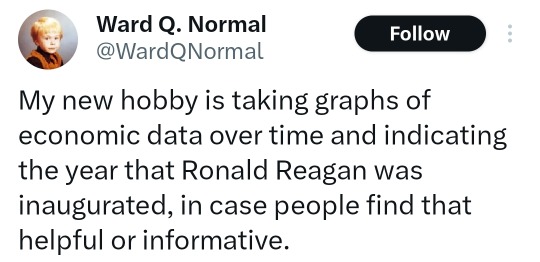




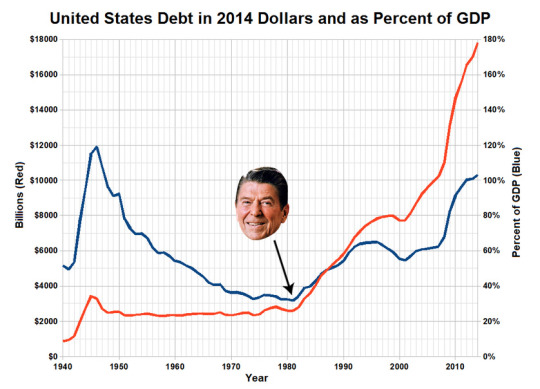

And possibly the most important one that explains the rest
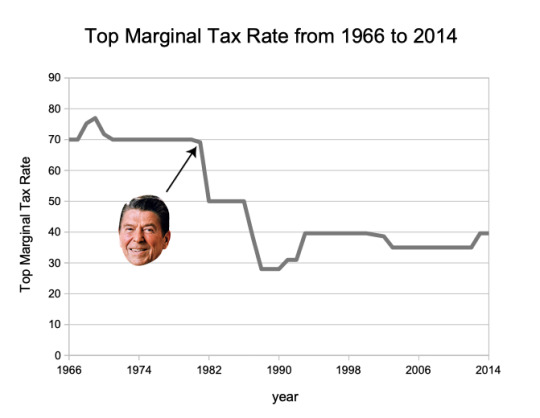
Happy July 5th
12K notes
·
View notes
Text

133 notes
·
View notes
Text
"The Deep State Mafia is running both political parties" Journalist Whitney Webb reveals
youtube
#politics#j d vance#trump#deep state#maga#history#peter thiel#palantir#big brother#new world order#globalism#2024 rnc#dnc 2024#world economic forum#never trump#paypal#wal mart#amazon#CIA#war on terror#george w bush#propaganda#covid 19#9/11#operation warp speed#Israel#benjamin netanyahu#jeffrey epstein
42 notes
·
View notes
Video
youtube
My Ultimate History Crash Course
Are we in a second Gilded Age? Is Trump really a Fascist? Why are we so politically polarized? How did corporations take over our politics?
To understand the present, study the past.
Please join me as I share 6 crucial lessons from history.
285 notes
·
View notes
Text

40 notes
·
View notes
Text

ᴅᴏɴᴀʟᴅ ᴛʀᴜᴍᴘ May 19, 1997 - at Mar-a-Lago, Florida - by Max Vadukul.
#donald trump#1990s#business#fashion#style#celebs#politics#economics#max vadukul#photos#usa#history#people#culture#am i bovvered?#👽
18 notes
·
View notes
Text
Well then, let’s take the time to remember that watermelon was a liberatory and wealth building crop for us after enslavement until jealous racist White Americans began to proliferate racist propaganda about it and stole our land. 💯
Foolishness like this reminds me of Toni Morrison’s quote on racism in 1992: 👇🏾
“If I take your race away, and there you are, all strung out. And all you got is your little self, and what is that? What are you without racism? Are you any good? Are you still strong? Are you still smart? Do you still like yourself? I mean, these are the questions.“
Vote, y’all. Please. 🗳️
#2024 presidential election#klan rally#racism#stereotypes#watermelon#black history#black economics#black liberation#black lives matter#black owned#black women#black wealth#blacklivesmatter#vote blue#vote kamala#kamala 2024#kamala harris#donald trump#democrats#republicans#politics
14 notes
·
View notes